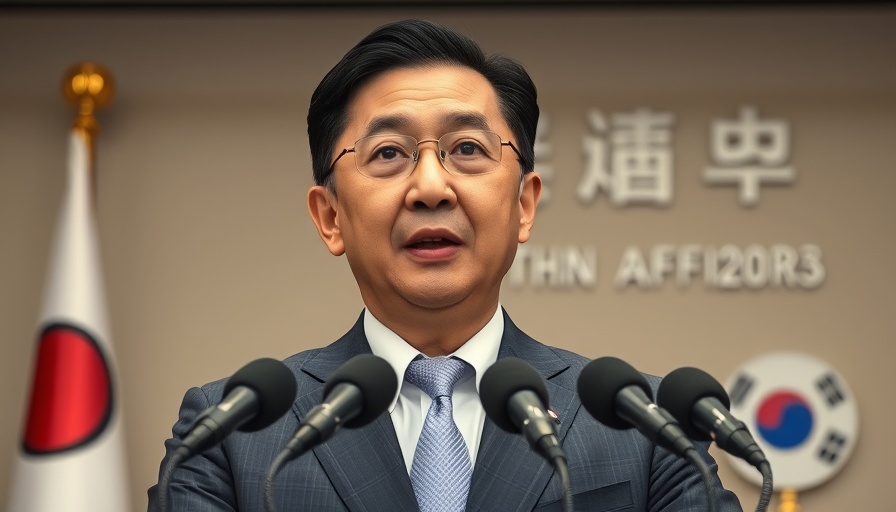
Mass Arrests at Georgia Hyundai Plant: A Shocking Development
In a dramatic escalation of U.S. immigration enforcement, nearly 475 workers were detained in a raid at a construction site for Hyundai’s car battery factory in Georgia. This operation, which took place late on September 5, stands out as the largest single-site enforcement action in the history of the Department of Homeland Security (DHS).
Background on the Raid: What Happened?
The raid disrupted what is being touted as Hyundai's largest investment in the U.S., amounting to $26 billion in total. With South Korea recently pledging $150 billion for U.S. investments at a leader summit, the implications of this enforcement action have rippled through international diplomatic channels. Many of those detained were reported to be South Korean nationals, raising concerns about the effects such a crackdown might have on U.S.-South Korea relations.
The Implications: Economic and Political Ramifications
The economic impact is significant; construction for a factory that promises to enhance the U.S.'s technological standing in the electric vehicle market has come to an abrupt halt. Rights advocates point out that while the goal of these operations is to enforce immigration laws, the broader consequences can hinder corporate investments and technological advancements—key components of America’s economic future.
Context: The Broader Enforcement Landscape
The action underscores a continued crackdown on undocumented workers, a hallmark of the Trump administration's approach to immigration. Despite a focus on deporting criminal offenders, the reality is that many detained individuals are non-criminals caught up in this net of enforcement. This has alarmed rights groups, which argue that these operations have increasingly struck at the fabric of communities and industries that rely on immigrant labor.
South Korea's Response: Concern Over Investments
Following the raid, South Korea's Foreign Ministry expressed deep concern that such law enforcement actions undermine economic activities involving its citizens and businesses in the U.S. This sentiment reflects a growing unease over the potential fallout from such immigration enforcement efforts, even as the two countries maintain critical economic ties.
Future Predictions: What Lies Ahead?
As industries seek to jumpstart economic recovery post-pandemic, the balance between maintaining national security and encouraging immigrant labor becomes increasingly delicate. Analysts speculate that if enforcement actions are sustained at this level, they could lead to a slowdown in foreign investment and create labor shortages in the sectors heavily populated by immigrant workers.
Conclusion: Finding Common Ground
The recent raid at Hyundai's battery plant serves as a crucial case study regarding the effectiveness and ethics of U.S. immigration enforcement. As companies navigate this complex landscape, the need to engage in open dialogues that balance enforcement with economic interests may be more urgent than ever. For impacted communities and industries, understanding these dynamics will be essential for fostering cooperation and ensuring a sustainable future.
To stay informed about how immigration policy continues to evolve and affect various sectors, keep an eye on the developments in U.S.-South Korea relations, as these will likely shape future investment opportunities and strategies.
 Add Row
Add Row  Add
Add 




Write A Comment